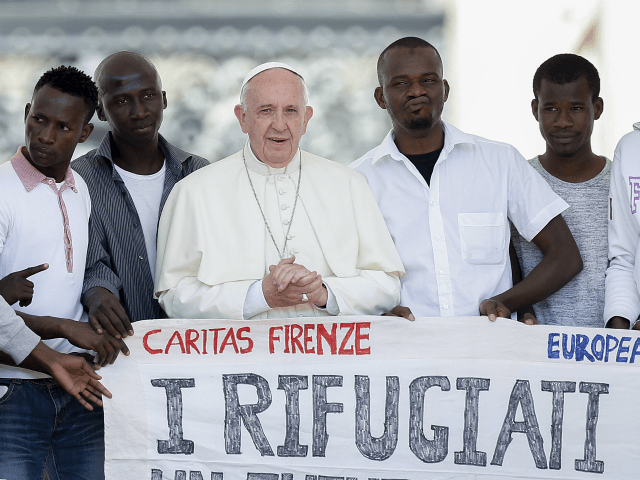ROME — “The pandemic must not make us forget other dramatic situations, such as violence and abuses against migrants,” said Father Fabio Baggio of the Vatican’s office for Migrants and Refugees in an interview with Vatican News Friday.
Commemorating the U.N.’s International Migrants Day Friday, Father Baggio said that “a whole series of dramas that existed before the pandemic are still there and some are even aggravated. Among these, there was also the tragedy of displaced persons, refugees, migrants who were raped or whose rights have been violated.”
We need to overcome “the human instinct to focus on ourselves when we are faced with a dangerous situation” in order to “look beyond, to notice the situations of others.”
This is a “temptation present in our world, understandable because it is part of our nature,” he said.
Pope Francis has reiterated his call for a more welcoming attitude toward migrants, insisting everyone has the right to “dream of a better future.” https://t.co/tdUk6Oeeju
— Breitbart News (@BreitbartNews) October 5, 2020
“We are all in the same boat and no one can be left behind,” the Vatican official said. “Here we are all saved together.”
The U.N. Secretary-General, António Guterres, offered a similar message Friday, urging the world to “seize the opportunity of the recovery from the pandemic to implement the Global Compact for Safe, Orderly and Regular Migration, reimagine human mobility, enable migrants to reignite economies at home and abroad and build more inclusive and resilient societies.”
The United Nations General Assembly proclaimed December 18 as International Migrants Day twenty years ago, Vatican News notes, and yet only 51 countries have ratified the convention, and none from Western Europe or North America.
In his interview Friday, Father Baggio acknowledged that many people are enticed into migrating by unscrupulous traffickers in persons who paint beautiful pictures of what life is life elsewhere on the globe.
There are those who present “imaginary situations to these people, securing who knows what job in an industrialized country in exchange for thousands of dollars,” he noted.
“People are contacted in their small village by real immigration agents, who are not very different from those of the late nineteenth century who went around the Italian countryside trying to fill steamers leaving for America,” Baggio said. “They offered a wealth that for many did not exist by selling a dream to people who did not see a future corresponding to their aspirations in their own homeland.”
Reminder that Pope Francis rules a walled city-state with arguably the most restrictive immigration and citizenship rules in the world https://t.co/VEM2tmiLXx
— Breitbart London (@BreitbartLondon) October 5, 2020
“The violation of rights continues at every border, at every change of trip and driver,” the priest continued. “You have to pay continuously, and since money is never enough, the payment ends up being based on exploitation.”
“We have read the reports presented both by the United Nations, but also by major newspapers that have described situations of slavery, abuse, and sexual violence along these routes,” he said.
“We have heard stories of trafficking, of jobs that are very different from those that were promised,” he said, “not to mention underpaid or even unpaid jobs required to pay off the debts accumulated during the trip.”

COMMENTS
Please let us know if you're having issues with commenting.